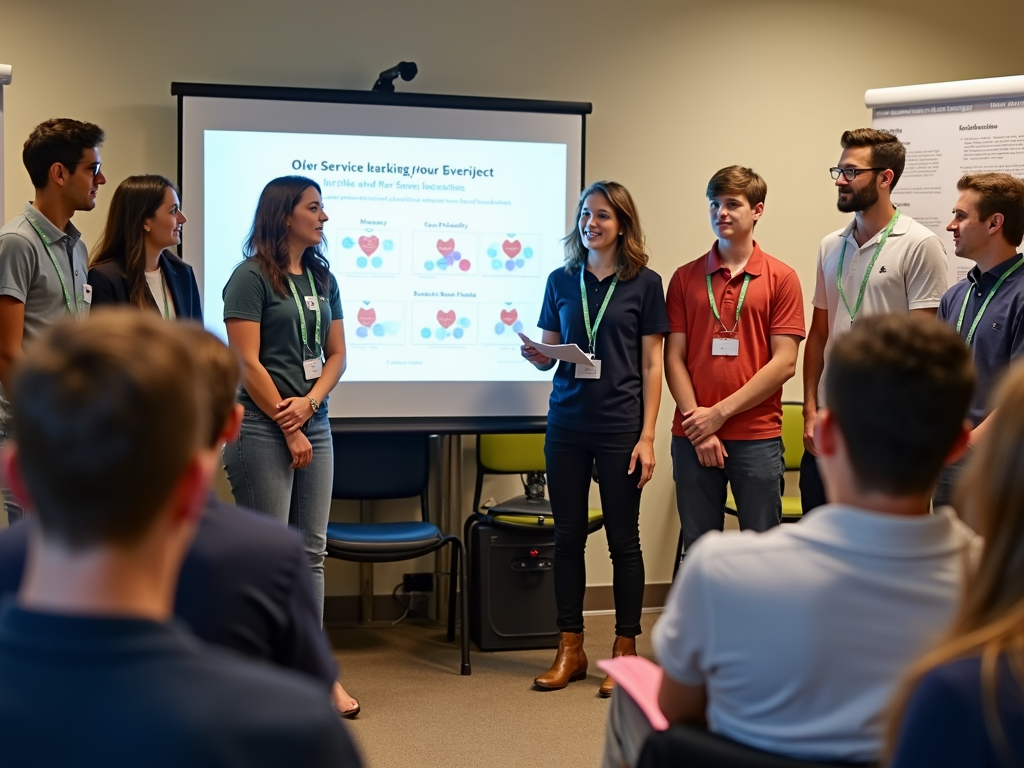Navigating the World of Grants for Educational Projects
By , April 27, 2025
Grants are funds provided by organizations, governments, or foundations to support specific projects or initiatives. In the context of education, grants can be used to fund a wide range of projects, from curriculum development to community outreach programs. For educators and administrators, securing grants can be a game-changer, providing the resources needed to bring innovative ideas to life.
One area where grants can have a significant impact is in service learning. Service learning is an educational approach that combines academic instruction with meaningful community service. By engaging students in real-world projects, service learning helps them develop critical thinking skills, empathy, and a sense of civic responsibility.
However, navigating the world of grants can be daunting, especially for those new to the process. With so many different types of grants available, each with its own eligibility criteria and application requirements, it's easy to feel overwhelmed. That's why it's essential to have a clear understanding of how to find, apply for, and manage grants effectively.
In this article, we'll guide you through the process of securing grants for educational projects, with a particular focus on service learning initiatives. Whether you're a teacher looking to fund a classroom project or an administrator seeking support for a school-wide program, you'll find practical tips and strategies to help you succeed.

Service learning is more than just volunteering; it's an educational philosophy that integrates community service into the curriculum. By connecting classroom learning with real-world experiences, service learning helps students develop a deeper understanding of the subject matter while also fostering a sense of social responsibility.
Research has shown that service learning can have a positive impact on student outcomes, including improved academic performance, increased civic engagement, and enhanced social skills. For example, a study by the National Service-Learning Clearinghouse found that students who participated in service learning programs had higher attendance rates and better grades than their peers.
Moreover, service learning can help bridge the gap between schools and communities, creating opportunities for collaboration and mutual support. By working together on projects that address local needs, students, teachers, and community members can build stronger relationships and create a more vibrant, engaged community.
Given these benefits, it's no wonder that many educators are eager to incorporate service learning into their teaching. However, funding can be a significant barrier, especially for schools with limited resources. That's where grants come in.

There are many different types of grants available for educational projects, each with its own focus and eligibility criteria. Some common types include:
-
Federal grants: These are funded by the U.S. government and can be used for a wide range of educational initiatives, from teacher training to technology upgrades. Examples include the Department of Education's Innovative Approaches to Literacy program and the National Science Foundation's STEM grants.
-
State grants: Many states offer grants to support educational projects at the local level. These grants may be targeted towards specific priorities, such as improving student achievement or promoting diversity and inclusion.
-
Foundation grants: Private foundations, such as the Bill and Melinda Gates Foundation or the W.K. Kellogg Foundation, often provide grants for educational projects that align with their mission and values.
-
Corporate grants: Many companies have philanthropic programs that support education, particularly in areas related to their business interests. For example, a technology company might offer grants for STEM education projects.
When searching for grants, it's important to look for opportunities that align with your project's goals and objectives. You should also consider the size of the grant, the application requirements, and the reporting obligations.
For service learning projects, there are specific grants available that focus on community engagement and civic education. For example, the Corporation for National and Community Service offers grants for service learning programs through its Learn and Serve America initiative.
| Type of Grant | Funding Source | Typical Focus | Application Process |
|---|---|---|---|
| Federal | U.S. Government | Broad educational initiatives | Competitive, often requires detailed proposals |
| State | State Government | Local educational needs | Varies by state, may be less competitive |
| Foundation | Private Foundations | Specific areas of interest | Often requires alignment with foundation's mission |
| Corporate | Businesses | Education related to business interests | May involve partnerships or sponsorships |

Finding the right grant for your educational project can be a time-consuming process, but there are several strategies you can use to make it easier.
-
Start with your network: Talk to colleagues, administrators, and other educators who have experience with grants. They may be able to recommend specific grants or provide tips on the application process.
-
Use online databases: There are many websites and databases that list grant opportunities for education, such as Grants.gov, the Foundation Center, and the National Education Association's grant database.
-
Subscribe to newsletters: Many organizations and foundations send out newsletters or email alerts about new grant opportunities. Signing up for these can help you stay up-to-date on the latest funding options.
-
Attend workshops and conferences: Professional development events often include sessions on grant writing and funding opportunities. These can be a great way to learn about grants and network with potential funders.
-
Research local foundations and businesses: Many communities have local foundations or businesses that support education. Reaching out to these organizations can lead to funding opportunities that are less competitive than national grants.
When searching for grants, be sure to read the eligibility criteria carefully and make sure your project aligns with the funder's priorities. It's also important to pay attention to deadlines and application requirements, as missing these can disqualify your application.

Once you've identified a grant that fits your project, the next step is to write a compelling proposal. A strong grant proposal should clearly articulate your project's goals, objectives, and expected outcomes, as well as demonstrate how it aligns with the funder's priorities.
Here are some tips for writing a successful grant proposal:
-
Follow the instructions: Carefully read the grant guidelines and make sure you address all the required components. Failure to follow instructions can result in your proposal being rejected.
-
Be clear and concise: Use simple language and avoid jargon. Make sure your proposal is easy to understand and gets straight to the point.
-
Show impact: Funders want to know that their investment will make a difference. Provide specific examples of how your project will benefit students, the school, or the community.
-
Include a budget: A detailed budget shows that you've thought through the financial aspects of your project. Be realistic and justify each expense.
-
Get feedback: Before submitting your proposal, ask colleagues or mentors to review it and provide feedback. They may catch errors or suggest improvements.
For service learning projects, it's important to highlight how the project will engage students in meaningful community service and how it connects to the curriculum. You should also emphasize the potential for long-term impact and sustainability.

Once you've secured a grant, it's crucial to manage the funds responsibly and in accordance with the grant agreement. This includes:
-
Tracking expenses: Keep detailed records of all expenditures related to the project. This will help you stay within budget and provide accurate reports to the funder.
-
Following reporting requirements: Most grants require periodic reports on the project's progress and outcomes. Make sure you understand these requirements and submit reports on time.
-
Communicating with the funder: If you encounter any challenges or changes in the project, communicate with the funder promptly. They may be able to provide guidance or flexibility.
-
Ensuring compliance: Be aware of any restrictions or conditions attached to the grant, such as how funds can be used or who can benefit from the project.
Effective grant management not only ensures that you meet the funder's expectations but also builds your reputation as a reliable grantee, which can help you secure future funding.

To demonstrate the success of your grant-funded project, it's important to measure its impact and share the results with stakeholders. This can include:
-
Collecting data: Use surveys, assessments, or other tools to gather data on student learning, community engagement, or other relevant outcomes.
-
Analyzing results: Look for patterns or trends in the data that show how the project has made a difference.
-
Sharing stories: In addition to quantitative data, share qualitative stories or testimonials from participants that illustrate the project's impact.
-
Reporting to the funder: Include your findings in your final report to the funder, highlighting both successes and lessons learned.
By measuring and communicating the impact of your project, you can show the value of service learning and grants in education, which can help secure ongoing support for your initiatives.

Navigating the world of grants for educational projects can be challenging, but with the right strategies and a clear understanding of the process, you can successfully secure funding for your initiatives. By focusing on service learning and demonstrating the impact of your projects, you can make a meaningful difference in the lives of your students and community.
For further reading, here are some recommended resources:
-
Grant Writing for Dummies - A comprehensive guide to writing successful grant proposals.
-
The National Service-Learning Clearinghouse - A wealth of information on service learning, including research, best practices, and funding opportunities.
-
Grants.gov - The official U.S. government website for finding and applying for federal grants.
Remember, securing grants is not just about the money; it's about creating opportunities for students to learn, grow, and make a positive impact on the world around them.